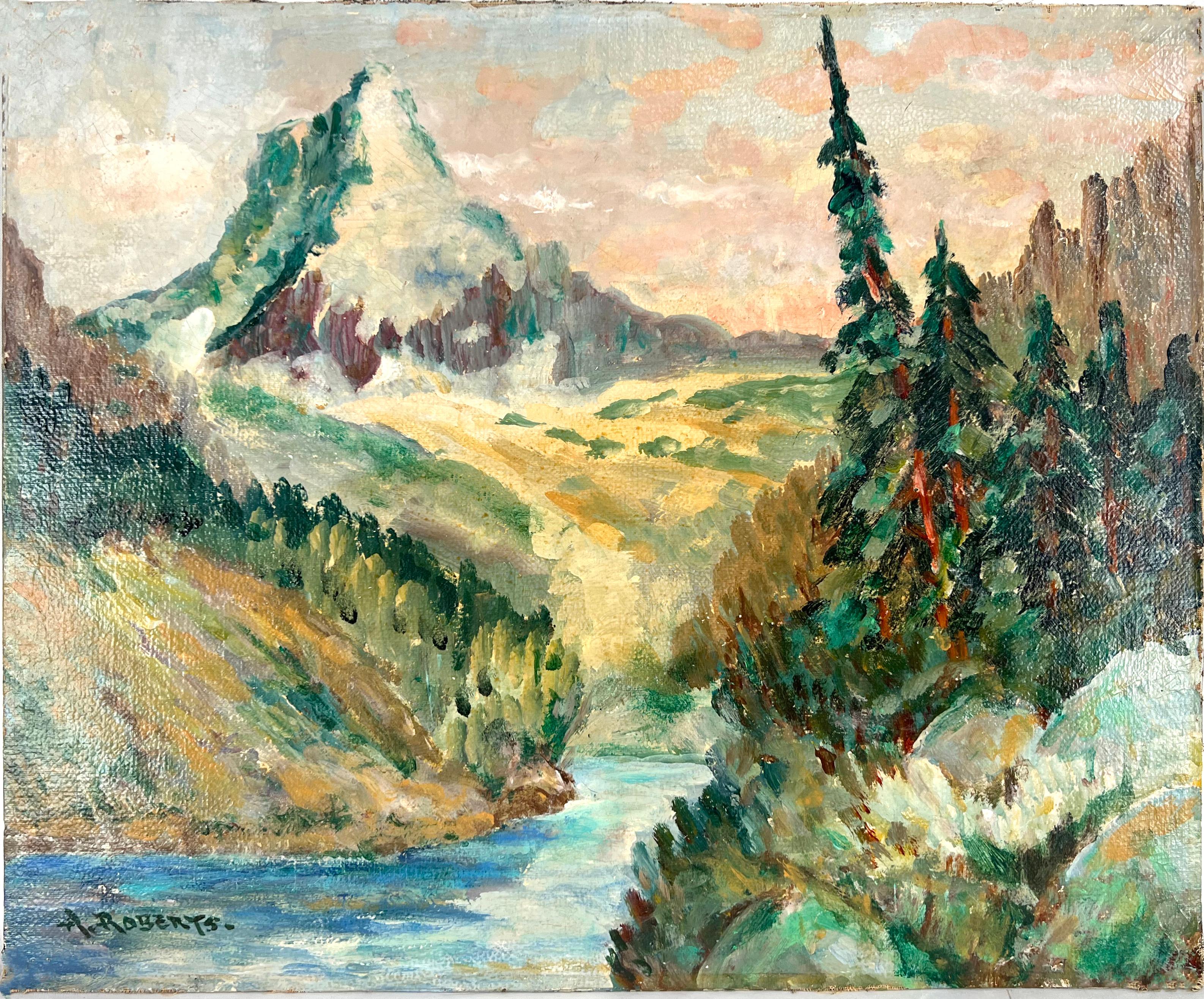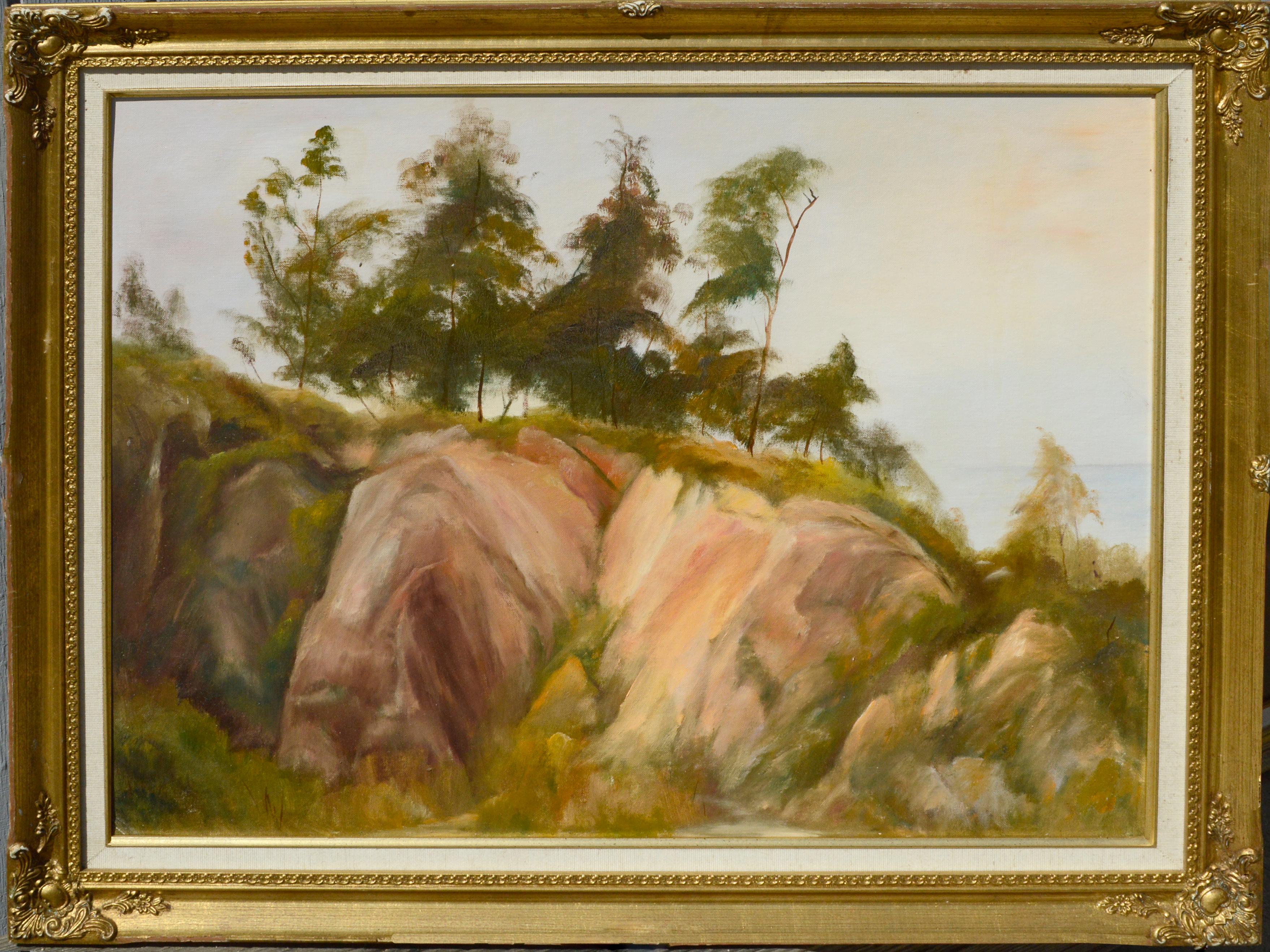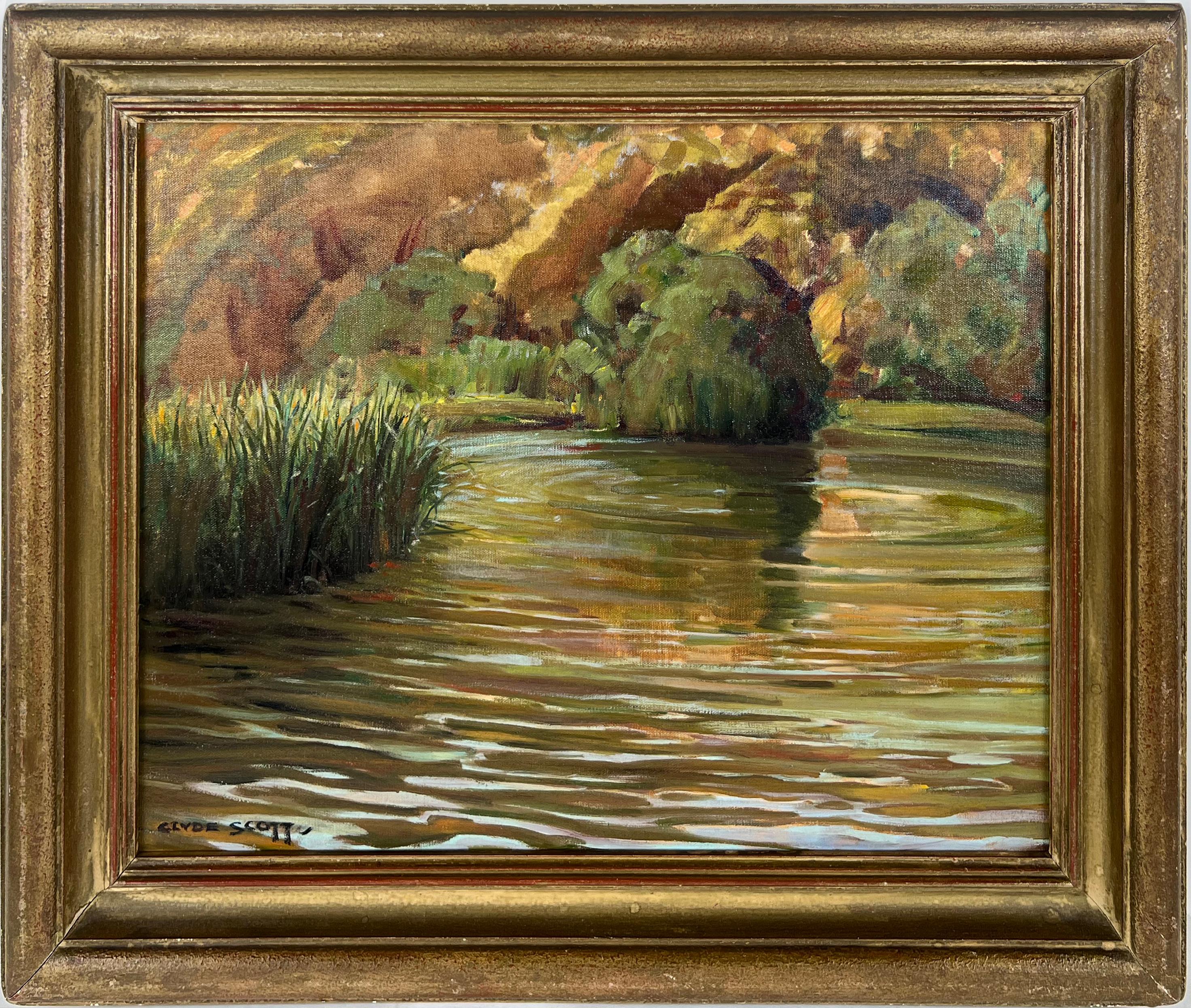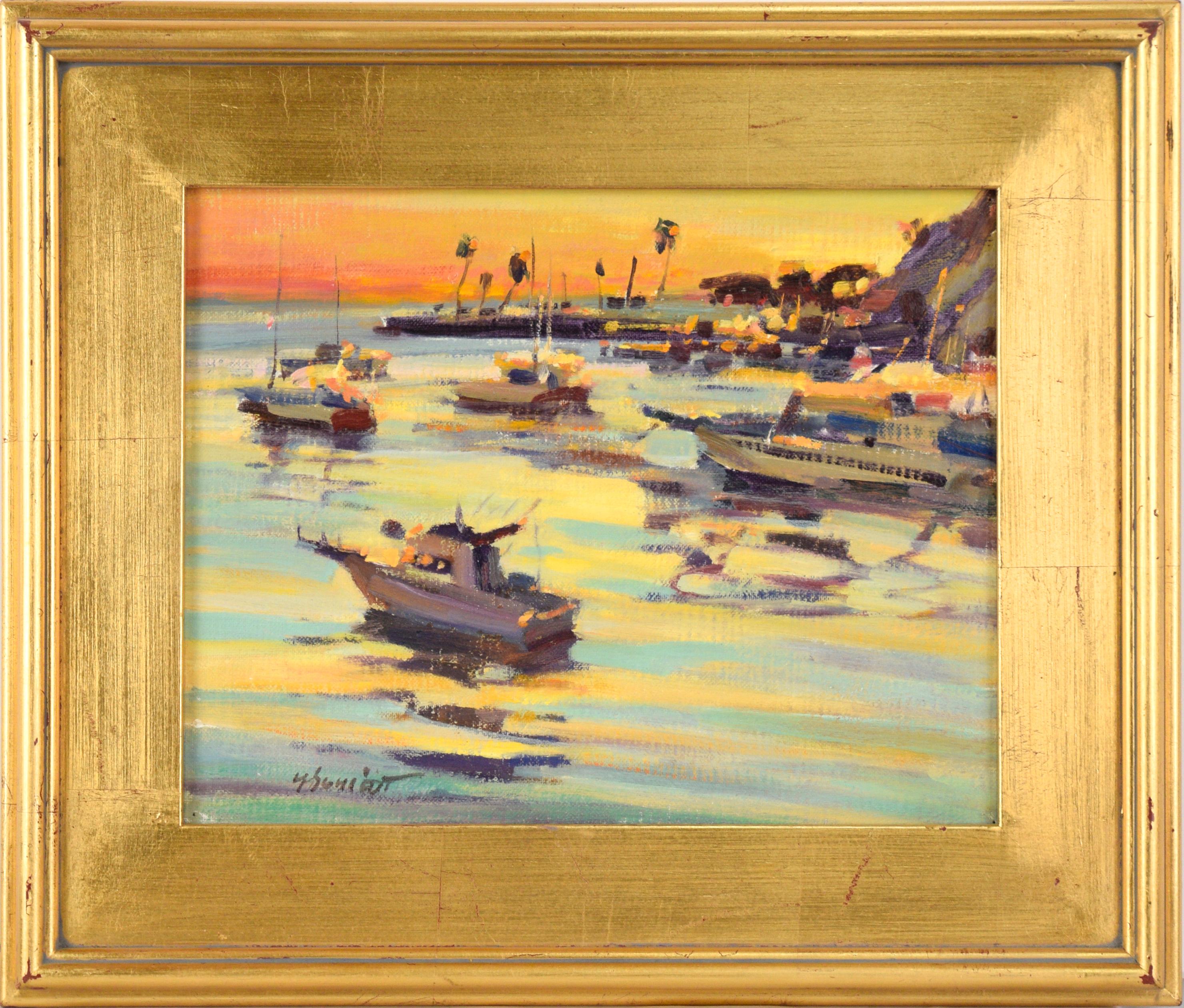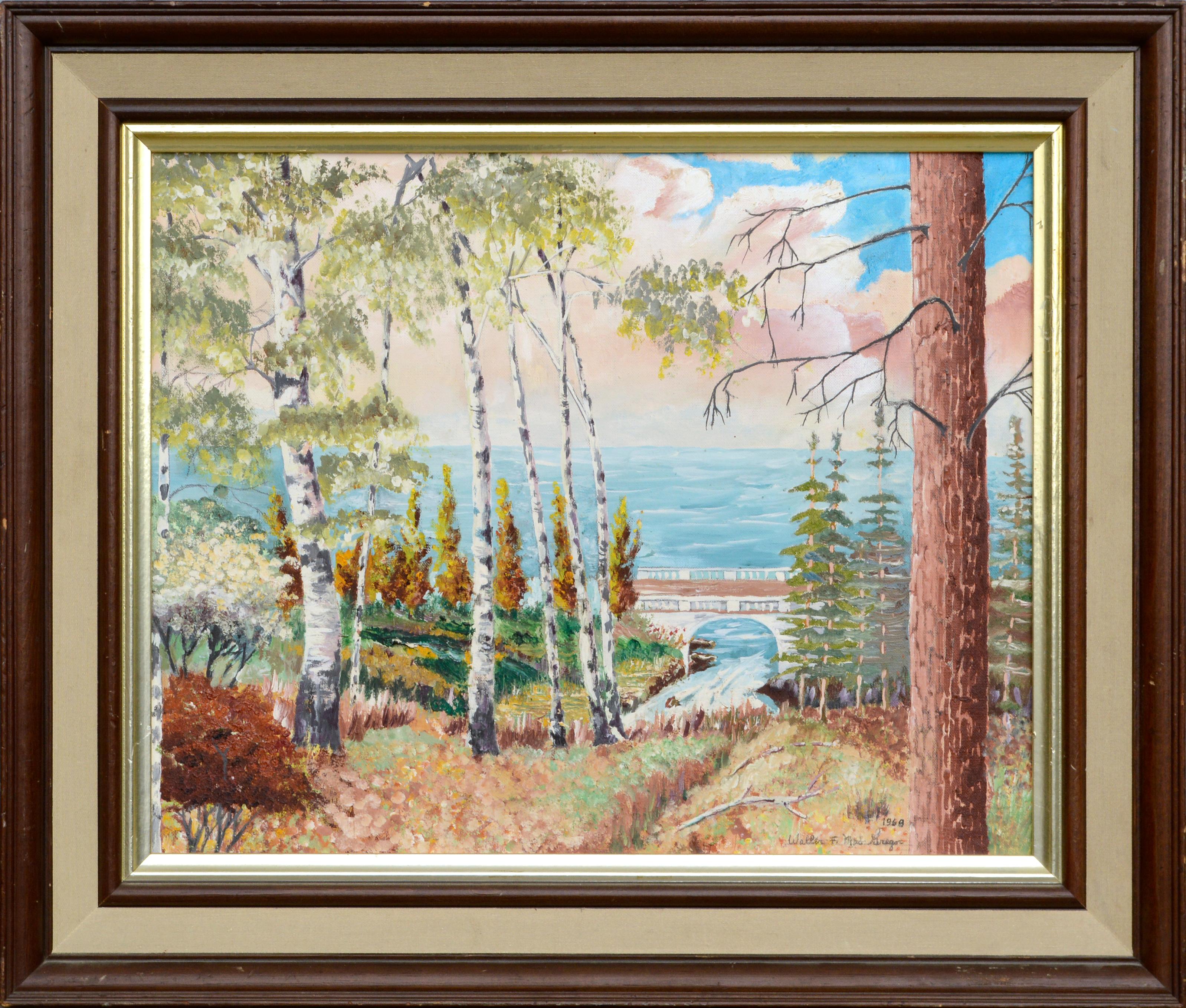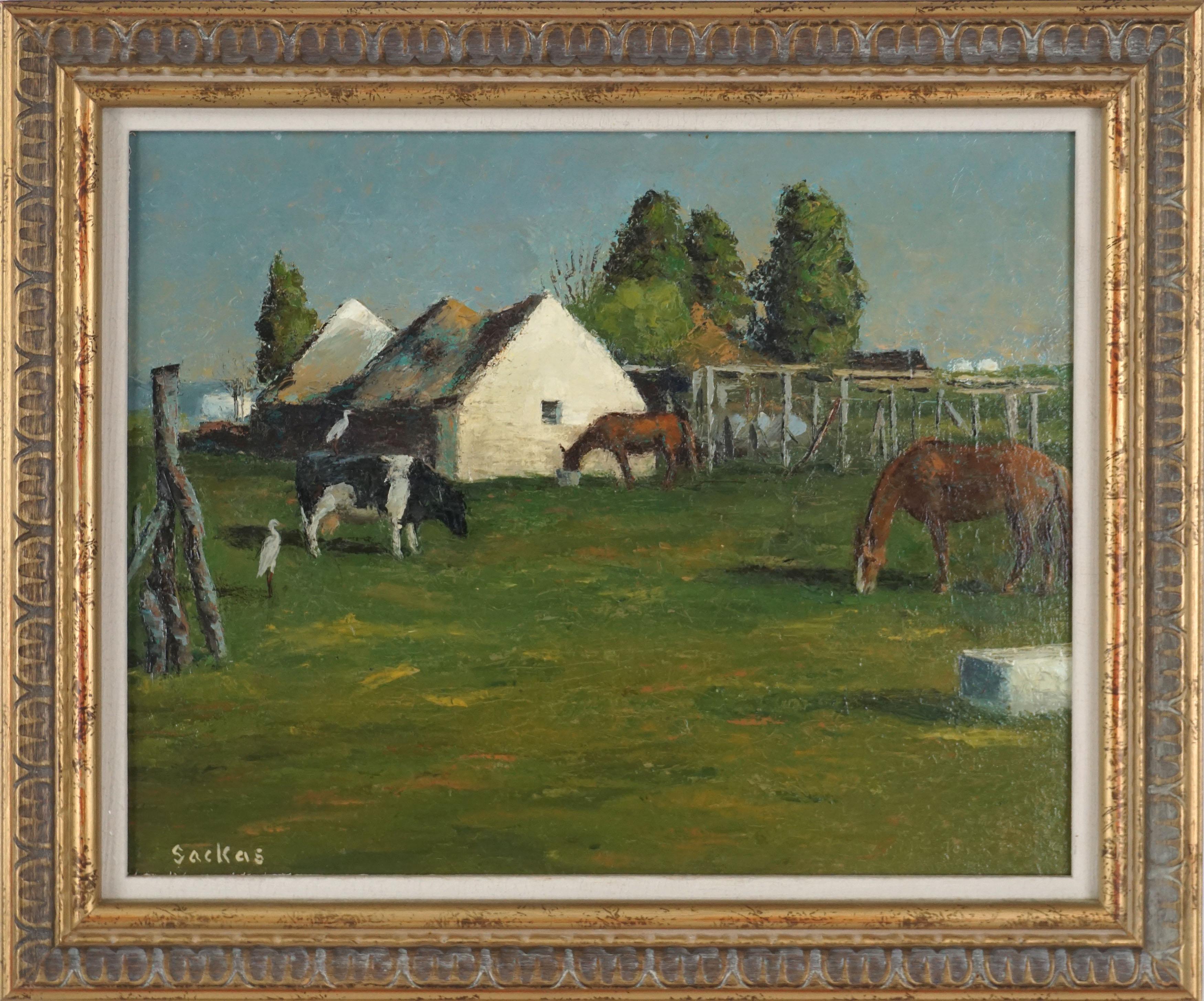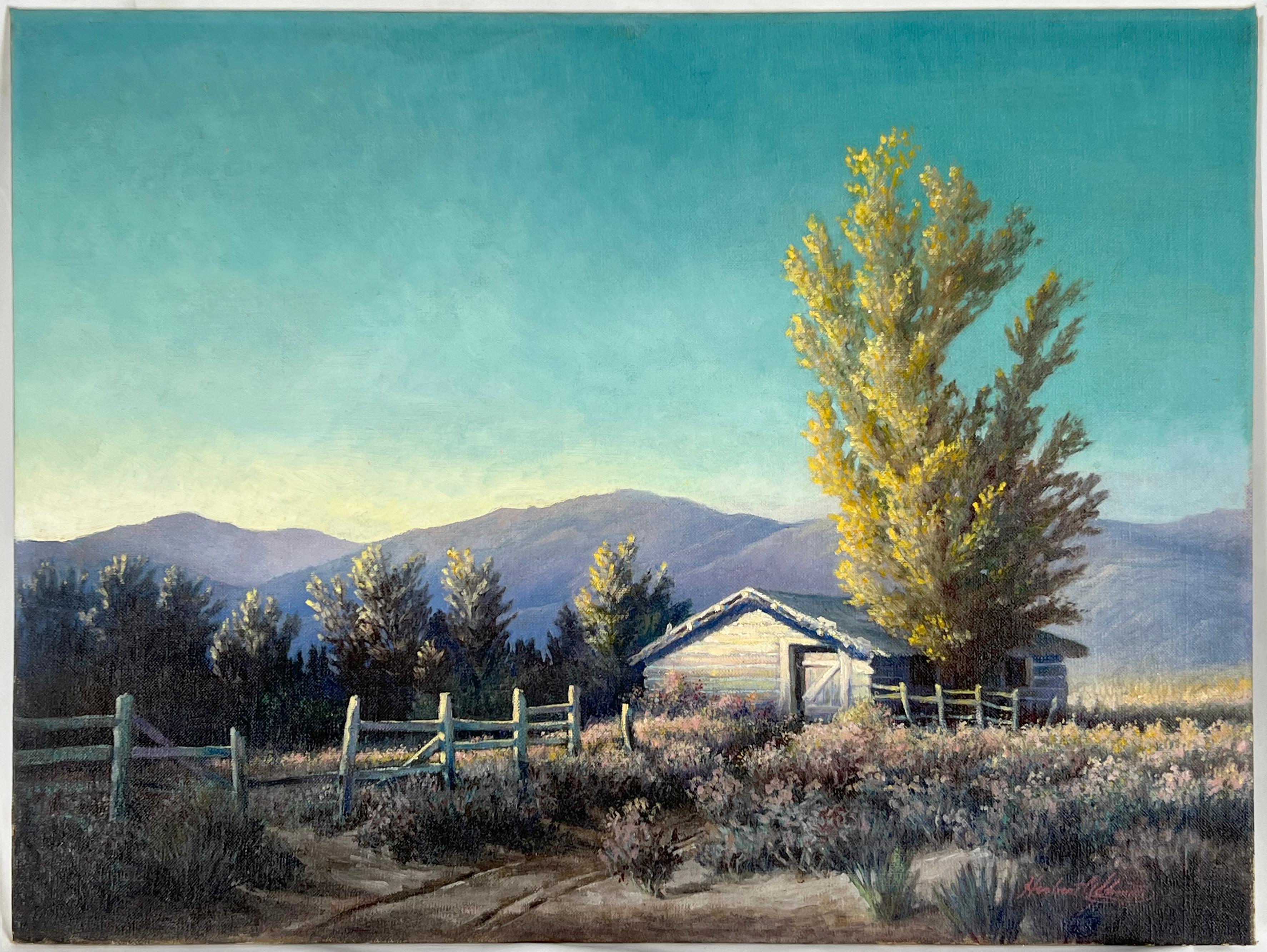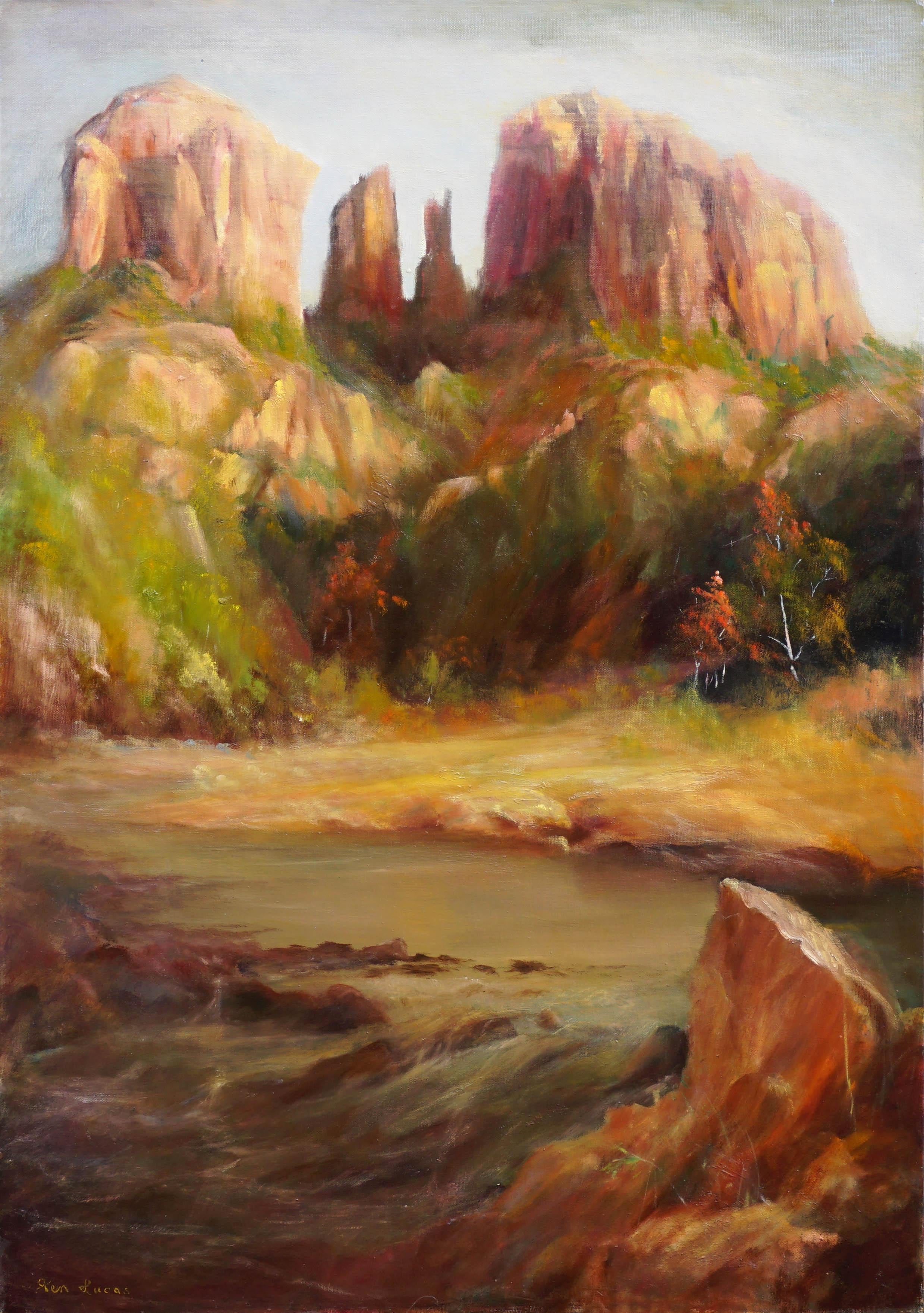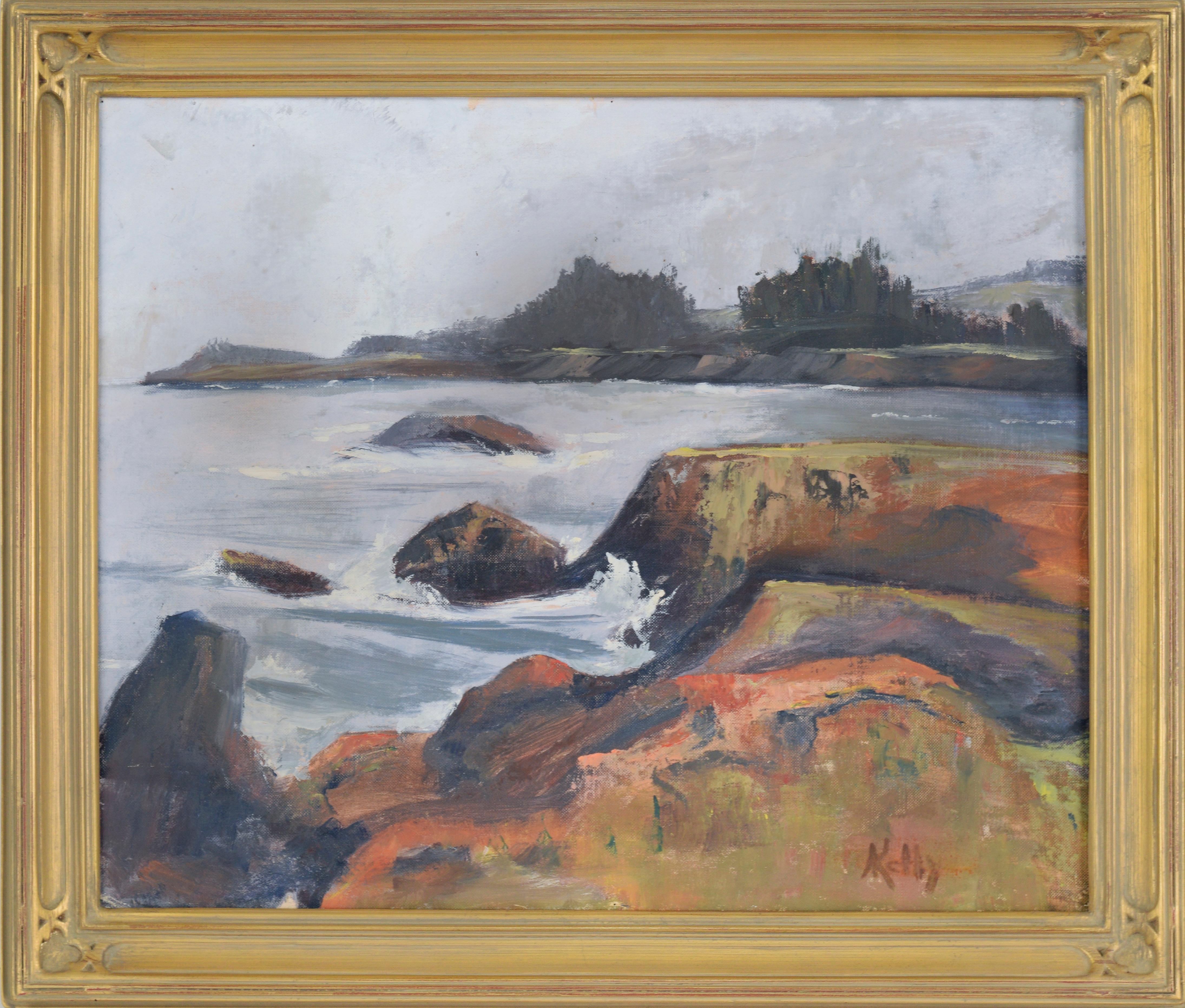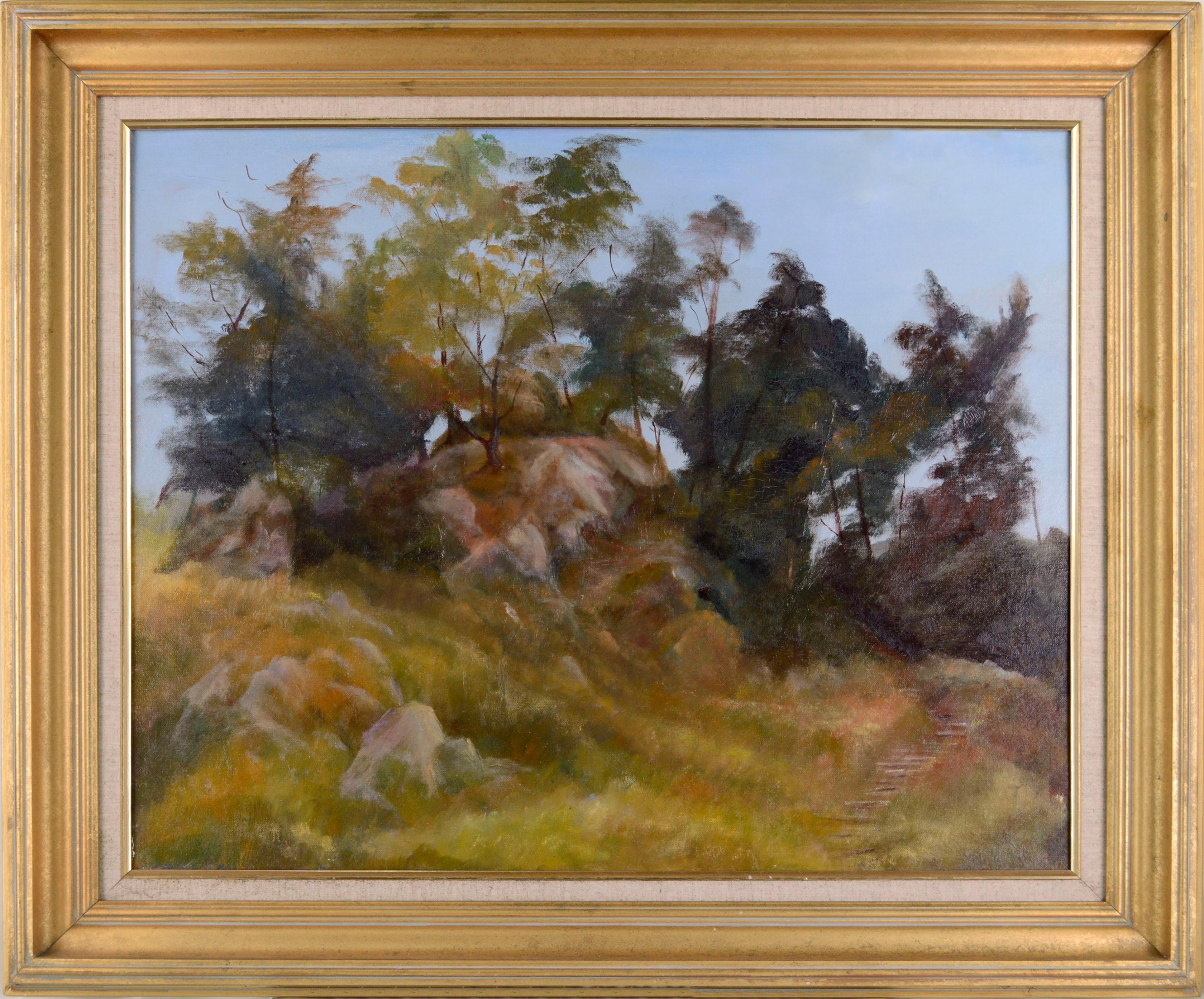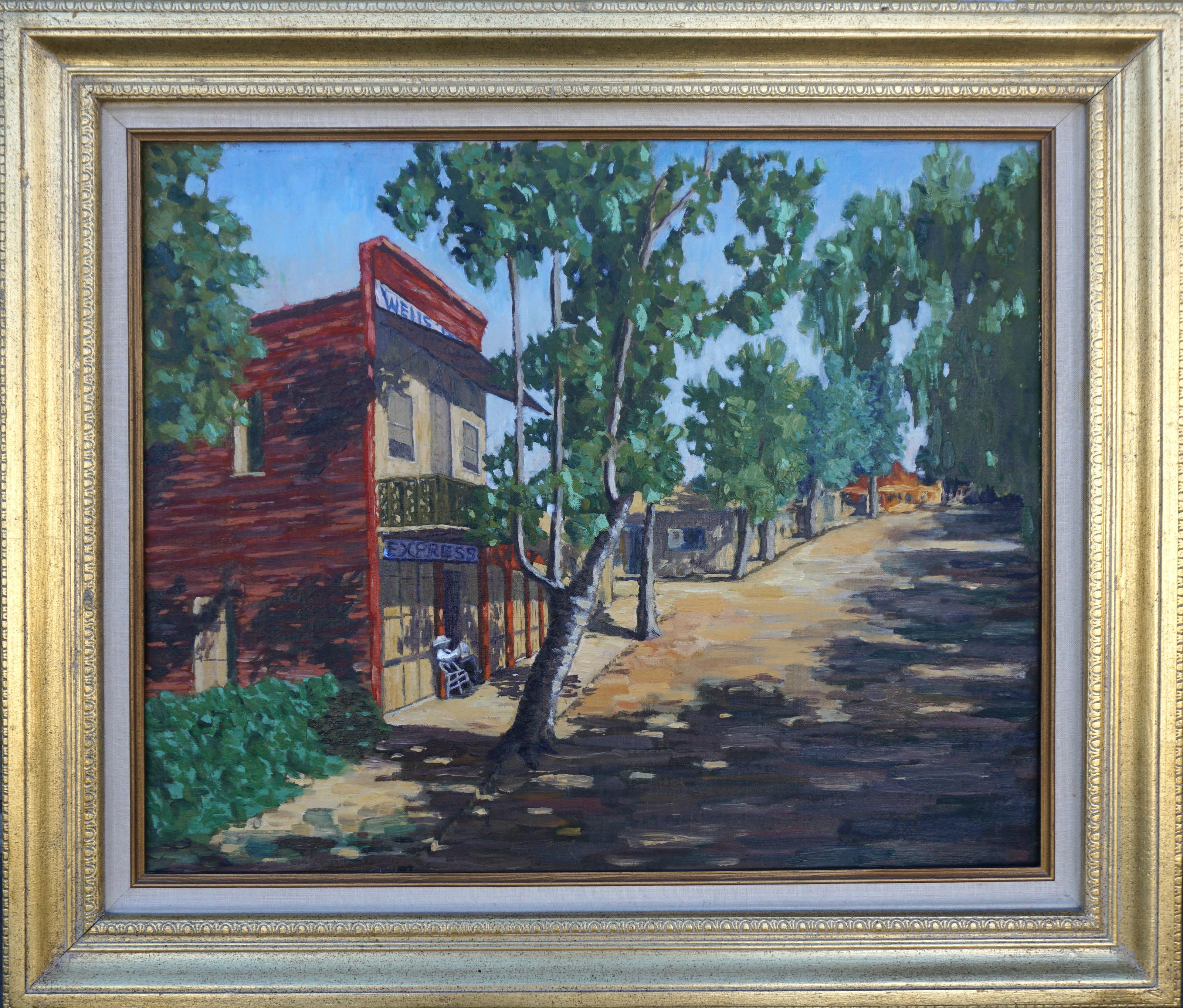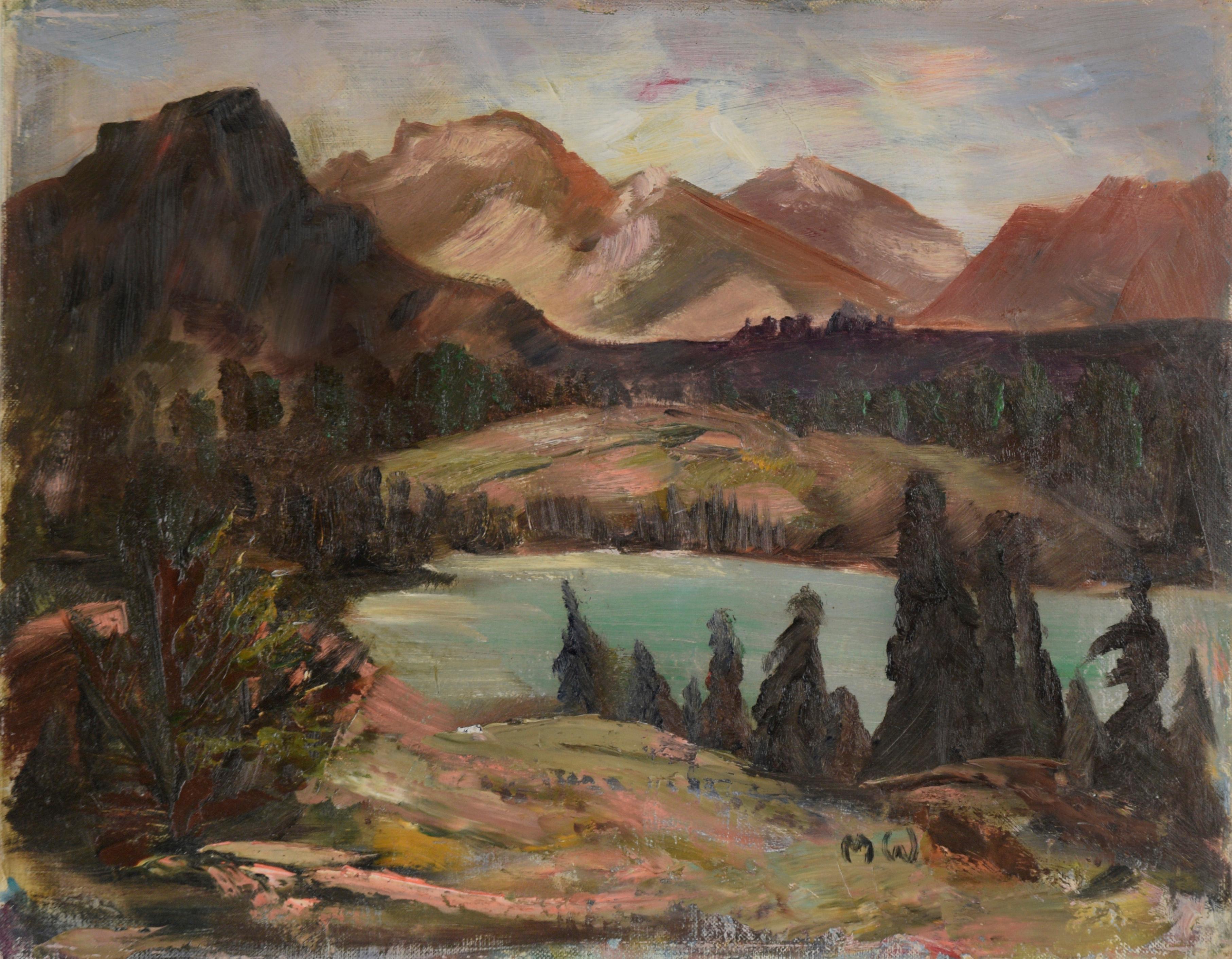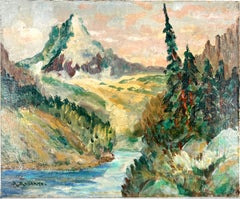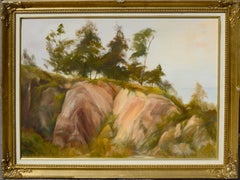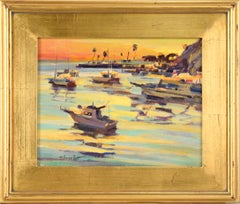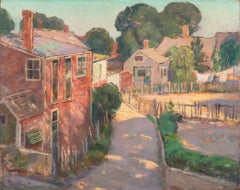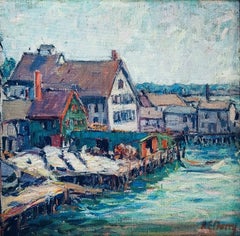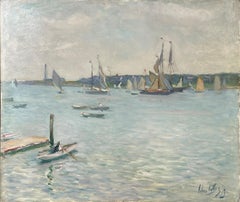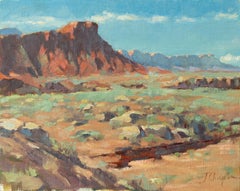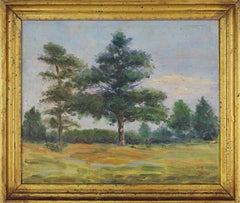
Small Early 20th Century California Plein Air Pine Trees Landscape
Want more images or videos?
Request additional images or videos from the seller
1 of 6
UnknownSmall Early 20th Century California Plein Air Pine Trees Landscape1908
1908
About the Item
- Creation Year:1908
- Dimensions:Height: 9.5 in (24.13 cm)Width: 11.5 in (29.21 cm)Depth: 0.8 in (2.04 cm)
- Medium:
- Movement & Style:
- Period:
- Condition:Good; linen relaid on pressed board. Original gilt-toned wood frame. Vintage frame may show signs of wear consistent with age and history. Minor cosmetic issues will be minimized but may not be restored to original condition. New hanging hardware.
- Gallery Location:Soquel, CA
- Reference Number:Seller: JT-D72881stDibs: LU5428993282
About the Seller
5.0
Platinum Seller
Premium sellers with a 4.7+ rating and 24-hour response times
Established in 1986
1stDibs seller since 2014
2,875 sales on 1stDibs
Authenticity Guarantee
In the unlikely event there’s an issue with an item’s authenticity, contact us within 1 year for a full refund. DetailsMoney-Back Guarantee
If your item is not as described, is damaged in transit, or does not arrive, contact us within 7 days for a full refund. Details24-Hour Cancellation
You have a 24-hour grace period in which to reconsider your purchase, with no questions asked.Vetted Professional Sellers
Our world-class sellers must adhere to strict standards for service and quality, maintaining the integrity of our listings.Price-Match Guarantee
If you find that a seller listed the same item for a lower price elsewhere, we’ll match it.Trusted Global Delivery
Our best-in-class carrier network provides specialized shipping options worldwide, including custom delivery.More From This Seller
View AllSierra Peak California Mountain and Stream 1930s
Located in Soquel, CA
Sierra Peak California Mountain and Stream 1930s
1930s painting of the California Sierras by Southern California artist Aaron Roberts (American, 19...
Category
1930s American Impressionist Landscape Paintings
Materials
Linen, Oil, Illustration Board
$556 Sale Price
20% Off
Trees at the Top of the Big Sur Coastal Bluffs Landscape - Oil on Artists Board
By Kenneth Lucas
Located in Soquel, CA
Trees at the Top of the Coastal Bluffs - California Coastal Landscape in Oil on Artists Canvas Board
Dramatic Big Sur Bixby Bridge and coastal landscape by California artist Ken Lucas (American, 20th Century). Towering Big Sur Hills with the Bixby Bridge and the ocean framed behind. Well executed with dramatic brush strokes in greens and red muted tones. the bridge appears suspended in the sky above the gorge and the sea.
"Ken Lucas" #65, 7/94 on verso
From a collection of the artist's works purchased from the artists estate.
Canvas size: 24"H x 30"W
In a gold toned frame with white linen liner (some age spots to the linen.)
Frame size, 29.5"H x 35.5"W x 1"D
Ken Lucas was a school teacher and amateur painter from Monterey, California. He was primarily self-taught but became proficient as an artist and left a legacy of excellent paintings. He was a friend of and painted with Richard Lofton, Carmel...
Category
1990s American Impressionist Landscape Paintings
Materials
Canvas, Oil, Illustration Board
"Ole Swimmin Hole" Southern California Pond and Hills Oil on canvas board 1930s
By Clyde Eugene Scott
Located in Soquel, CA
"Ole Swimmin Hole" Southern California Oil on canvas board 1930s
Elegant mid century landscape depicting a lake and hillside in summer by well known and collected California artist ...
Category
1940s American Impressionist Landscape Paintings
Materials
Oil, Canvas, Illustration Board
"Santa Catalina Island Harbor" Seascape at Sunset in Oil on Artist's Panel
Located in Soquel, CA
"Santa Catalina Island Harbor" Seascape at Sunset in Oil on Board
Vibrant harbor seascape by Gary J. Schildt (American, 1938-2021). Several boats are anchored in the harbor, with the shore stretching out into the distance along the right side of the composition. The water reflects the yellow and orange sky, creating a shimmering effect.
Signed "G Schildt" in the lower left corner.
Titled and signed on verso "Santa Catalina Island Harbor by Gary Schildt...
Category
Late 20th Century American Impressionist Landscape Paintings
Materials
Canvas, Oil, Illustration Board
The Cascades Landscape in Oil on Artist's Board
By Walter F. MacGregor
Located in Soquel, CA
Colorful landscape by American artist Walter F. MacGregor (American, 1890-1979). Dated and signed "1969 Walter F. MacGregor" in the lower right corner. Presented in a dark wood frame...
Category
1960s American Impressionist Landscape Paintings
Materials
Illustration Board, Canvas, Oil
Rota, Spanish Landscape -- Pobre Casa Cadiz
By John Sackas
Located in Soquel, CA
Wonderful Spanish landscape of a humble farm in Rota, Cadiz, Spain with horses, a cow with two herons, one of which is on cow's back by San Francisco artist John Sackas (American, 1910-2004), circa 1950s. Signed lower Left "Sackas" and verso Rota
Farm House Cadiz" "John Sackas" . Verso has location, attribution and full artist's biography. Presented in gilt-toned carved wood frame. Image size: 14"H x 18"W.
Born in New Jersey on May 22, 1910. John Sackas studied at the San Francisco Art Institute (1934), Chouinard Art School in Los Angeles, Corcoran Gallery of Art, and California School of Fine Arts, Jerry...
Category
1950s American Impressionist Landscape Paintings
Materials
Canvas, Oil, Illustration Board
$1,000 Sale Price
20% Off
You May Also Like
'Sunny Afternoon', Chicago Impressionist, Paris, Grande Chaumiére, Woman Artist
By Pauline Palmer
Located in Santa Cruz, CA
Signed lower left, 'Pauline Palmer' (American, 1867-1938) and painted circa 1915, two years after the artist's first solo exhibition at the Art Institute of Chicago.
Exhibited: Chicago Galleries Association and titled, 'Sunny Yards' (attached, partial label from original frame)
A staunch proponent of pure Impressionism at the turn of the twentieth century, Pauline Palmer influenced the world of American art far beyond her Midwestern art community. Primarily known for her landscapes and portraits, Palmer rejected the waves of modernism that hit the United States in the teens and twenties, remaining true to the traditions of Impressionism. In 1923, she established the Association of Chicago Painters and Sculptors as an alternative to the increasing number of institutions celebrating Abstraction and Cubism.
Pauline Palmer was enrolled at the Art Institute of Chicago from 1893 to 1898, and studied with some of the most prominent artists of the period, including William Merritt Chase and Frank Duveneck.
Following her graduation, Palmer moved to Paris and attended the Académie de la Grande Chaumiére and the Académie Colarossi, where she studied under Raphael Collin. While in France, she exhibited with success including at the Paris Salon each year from 1903-06 and, again, in 1911. Her principal teacher and friend in Paris was the American Impressionist, Richard Emil Miller, whose shimmering handling of light made a profound impression upon her. Palmer also traveled extensively throughout Europe, a rite of passage for aspiring artists of her time. Returning to Paris, she studied with Gustave Courtois and Lucien Simon, both exemplars of compositional structure. Upon her return to the United States, Palmer set up her first American studio in the legendary Tree Studios building in Chicago.
The artist's husband, Dr. Albert Palmer, whom she had married in 1891, both supported and encouraged his wife's artistic development. The couple kept a summer home in Provincetown, Massachusetts, where she made friends with many of the Portuguese fishermen's families, often using their children and the routines of their daily lives as subject matter for her painting.
Pauline Palmer exhibited widely and with success, including in Italy, France, Norway and throughout the United States. Her works were shown at the National Association of Women Painters and Sculptors and, beginning in 1899, she exhibited at the Art Institute of Chicago for twenty-seven consecutive years. Over the course of her long career, she exhibited over 250 paintings at the Art Institute of Chicago, including at two solo exhibitions. She was the recipient of numerous prizes, medals and juried awards including nearly all the AIC's major awards, purchase prizes and honorable mention citations. Palmer also received a gold medal from the Colarossi Academy in Paris. Involved in numerous artist organizations, she was a member of the Chicago Municipal Art League, the Chicago Art Guild, the Chicago Arts Club and a charter member of the Chicago Women's Salon. Elected the first woman president of the Chicago Society of Artists, she went on to serve as president of both the Art Institute Alumni Association and the Chicago Association of Painters and Sculptors.
Considered by the Modernists of her day to be a traditionalist, Pauline Palmer remained true to her artistic vision and she continues to be regarded as one of the leading women of American Impressionism. Her light-filled, colorful compositions captured landscapes and scenes of American daily life with unusual freshness and seeming effortlessness. Celebrated during her life as "Chicago's Painter Lady," Palmer was honored twelve years after her death by a posthumous retrospective at the Art Institute of Chicago and the establishment of an annual scholarship awarded in her honor by the Art Institute of Chicago.
(with thanks to Hali Thurber)
CHRONOLOGY
1867, Born in McHenry, IL
1885, Moves to Chicago to teach art
1891, Marries Dr. Albert Elwood Palmer
1893, Exhibits, World's Columbian Exposition, Chicago
1896, First exhibits at the Art institute of Chicago
1898, Exhibits at Exposition in Omaha, NE
1899, First exhibit, Pennsylvania Academy of Fine Arts
1900-1902, Studies with various artists in Paris
1901, Exhibits at Exposition in Buffalo
1903-1906, Exhibits at Paris Salon
1904, Exhibits at Universal Exposition in St. Louis,
1907, Four prizes at the Art Institute of Chicago
1911, Exhibits at the Paris Salon
1911, Exhibits at the Expositione de Belle Arti, Naples
1913, Solo exhibition, Art Institute of Chicago
1915, First prize, Society of Western Artists
1917, Opens first American studio in Chicago
1918, First woman president, Chicago Society of Artists 1918-1929, holds position of president for 11 years
1918-1921, Silver medals, Society of Chicago Artists
1921, Silver medal at Peoria Society of Allied Artists
1927, President, The Art Institute Alumni Association
1929-1931, President, Chicago Association of Painters and Sculptors
1938, Dies, Trondheim, Norway
AWARDS
1904, Universal Exposition in St. Louis, bronze medal
1907, Art Institute 's Chicago Artists' Exhibition
1915, Society of Western Artists exhibition, first prize
1918, Society of Chicago Artists, silver medal
1921, Peoria Society of Allied, silver medal
Solo Exhibitions:
1913, Art Institute of Chicago
1939, Art Institute of Chicago, memorial exhibition
Union League Club of Chicago, memorial exhibition
Group Exhibitions:
1893, World's Columbian Exposition in Chicago
1896, Art institute of Chicago
1898, Exposition in Omaha, NE
1899, Pennsylvania Academy of Fine Arts
1899-1926, Art Institute of Chicago
1901, Exposition in Buffalo
1903-06 Paris Salon
1904, Universal Exposition in St. Louis
1911, Paris Salon
1911, Expositione de Belle Arti, Naples
1915, Exposition in San Francisco
1950, Chicago Galleries Association
1984, Lakeview Museum of Arts and Sciences, Peoria
Memberships:
1918-29, First woman President,Chicago Society of Artists
1927, President of The Art Institute Alumni Association
1929-31, President of Chicago Association of Painters and Sculptors
Reference:
E. Benezit, Dictionnaire des Peintres, Sculpteurs, Dessinateurs, et Graveurs, Jacques Busse, 1999 Nouvelle Édition, Gründ 1911, Vol. X, page 523; Thieme-Becker Allgemeines Lexikon der Bildenden Künstler von der Antike bis zu Gengenwart, Ulrich Thieme and Felix Becker, Deutscher Taschenbuch Verlag 1992, Vol. XXVI, page 129; Who Was Who in American Art 1564-1975: 400 Years of Artists in America, Peter Hastings Falk, Sound View Press 1999, Vol. III, page 2512; Mantle Fielding’s Dictionary of American Painters, Sculptors and Engravers, Glen B. Opitz, Apollo Press 1983, page 708; Biographical Encyclopedia of American Painters, Sculptors & Engravers of the U.S.: Colonial to 2002, Bob Creps, Dealer’s Choice Books, Inc. 2002, Vol. II, page 1047; Mallett’s Index of Artists, Daniel Trowbridge Mallett, Peter Smith: New York 1948 Edition, R.R. Bowker Company 1935, page 326; Pauline Lennards Palmer...
Category
1910s American Impressionist Landscape Paintings
Materials
Oil, Illustration Board
"Rockport Harbor" Kathryn E. Cherry, Female American Impressionist Landscape
Located in New York, NY
Kathryn E. Cherry
Rockport Harbor
Signed lower right
Oil on canvas board
10 1/2 x 12 inches
Kathryn Cherry was an influential St. Louis painter, ceramicist, designer, and art educa...
Category
Early 20th Century American Impressionist Figurative Paintings
Materials
Oil, Illustration Board
"Marblehead Harbor, Grey Day" John Rettig, 1919 Marine Landscape Work
Located in New York, NY
John Rettig
Marblehead Harbor, Grey Day, 1919
Signed and dated lower right
Oil on academy board
15 x 18 inches
Dubbed as the “Wizard of Scenic Creation”, John Rettig was best known...
Category
1910s American Impressionist Figurative Paintings
Materials
Oil, Illustration Board
Vermillion at Lee's Ferry ( Plein Air Landscape painting sky blue terracotta)
By Jane Chapin
Located in Cody, WY
This is a 'Plein Air" landscape Painting by Jane Chapin as seen in the viewing room exhibition on Silas VON MORISSE GALLERY.
“Plein-Air” is the French expression to describe the act of painting in situ within the landscape, capturing the ever changing weather and light with tonal qualities, colour, loose brushwork and softness of form... The practice of “Plein Air Painting” goes back for centuries but was truly made into an art form by the French Impressionists such as Claude Monet, Camille Pissarro, Alfred Sisley, and Pierre-Auguste Renoir who were advocating of plein air painting. Much of their work was done outdoors in the diffuse light of a large white umbrella. Another major proponent of Plein Air was Jean Baptiste Camille Corot whom Claude Monet considered as “The only One Master here”. Corot provides a transition from the sharp academic style that ruled in his day with focus on the natural world and the lyrical expressiveness of one's work. With her "Plein Air Paintings", Jane Chapin is part of one of the largest art movements in history. Her paintings carry human emotions. We can read her moods and feelings with places that carry deep remembrances for the artist that go beyond the descriptive.
"My paintings grow from observing and interpretating light as it emerges from, surrounds and reflects on everyday people and scenes. They seek to remind us of the beauty of our common surroundings, regardless of where we are." - Jane Chapin
Jane Chapin
Painting the Land of the Free...
Category
2010s American Impressionist Landscape Paintings
Materials
Linen, Oil, Board
Pecos Temple (Plein Air landscape Painting - beige neutral colors)
By Jane Chapin
Located in Cody, WY
This is a 'Plein Air" landscape Painting by Jane Chapin as seen in the viewing room exhibition on Silas VON MORISSE GALLERY.
“Plein-Air” is the French expression to describe the act...
Category
2010s American Impressionist Landscape Paintings
Materials
Linen, Oil, Board
Coming In & Going Out ( Plein Air Landscape painting green yellow colors)
By Jane Chapin
Located in Cody, WY
This is a 'Plein Air" landscape Painting by Jane Chapin as seen in the viewing room exhibition on Silas VON MORISSE GALLERY.
“Plein-Air” is the French expression to describe the act of painting in situ within the landscape, capturing the ever changing weather and light with tonal qualities, colour, loose brushwork and softness of form... The practice of “Plein Air Painting” goes back for centuries but was truly made into an art form by the French Impressionists such as Claude Monet, Camille Pissarro, Alfred Sisley, and Pierre-Auguste Renoir who were advocating of plein air painting. Much of their work was done outdoors in the diffuse light of a large white umbrella. Another major proponent of Plein Air was Jean Baptiste Camille Corot whom Claude Monet considered as “The only One Master here”. Corot provides a transition from the sharp academic style that ruled in his day with focus on the natural world and the lyrical expressiveness of one's work. With her "Plein Air Paintings", Jane Chapin is part of one of the largest art movements in history. Her paintings carry human emotions. We can read her moods and feelings with places that carry deep remembrances for the artist that go beyond the descriptive.
"My paintings grow from observing and interpretating light as it emerges from, surrounds and reflects on everyday people and scenes. They seek to remind us of the beauty of our common surroundings, regardless of where we are." - Jane Chapin
Jane Chapin
Painting the Land of the Free...
Category
2010s American Impressionist Landscape Paintings
Materials
Linen, Oil, Board
Recently Viewed
View AllMore Ways To Browse
Montauk Photography
Narrow Vertical Art
New York Trunk
Philip Guston Prints
Picasso Stamped Signature
Pope Engraving
R Bernard
Railway Map
Renoir Lithograph
S Newton
Sailing Engraving
Signed Leonor Fini
Slim Aarons Holiday In Capri
Slim Aarons Sunbathing In Capri
T H Filmer
Tennis Series
The Delano
Vintage French Opera Posters
